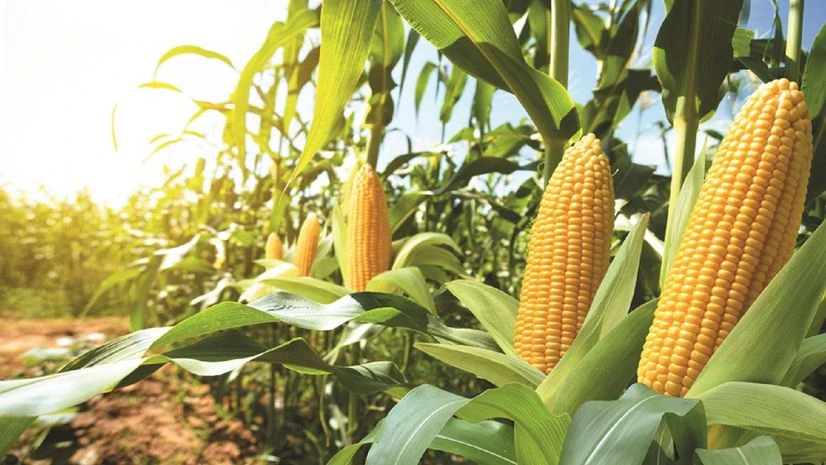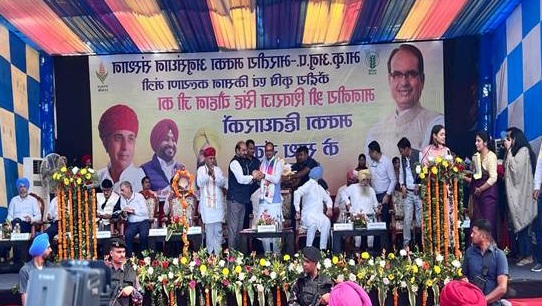
A Threat to Indian Farmers
Executive Summary
IIndia’s agricultural sector, vital for over half of the nation’s population, faces a growing threat from counterfeit seeds. These seeds, which are not genuine or fail to meet quality standards, make up nearly a quarter of the seed market. In the fiscal year 2023-24, 3,630 out of 133,588 tested seed samples were found to be substandard.
The use of fake seeds leads to poor germination, pest-contaminated crops, and even total crop failures, resulting in significant financial losses for farmers. This situation contributes to cycles of debt and is tragically linked to the rising rate of farmer suicides. Furthermore, counterfeit seeds distort the agricultural market, facilitate tax evasion, and undermine trust in the system, posing a threat to national food security.
In response, the Indian government has implemented measures such as stricter laws, enhanced licensing controls, surprise inspections, and seed traceability systems using QR codes. Awareness campaigns aim to empower farmers to identify and report fake seeds. However, legal loopholes, like the “truthful labeling” clause in the Seeds Act of 1966, hinder these efforts.
To effectively tackle this issue, a comprehensive reform agenda is essential, focusing on strong testing processes, betterregulatory oversight, and support for farmers to ensure their livelihoods and food security for the nation.
1.Introduction: The Bedrock of Indian Agriculture Under Siege
The agricultural sector in India is vital for over half of its population, making the quality of agricultural inputs essential for national prosperity and food security. Seeds are particularly significant, contributing an estimated 15-20% to overall crop production. Access to high-quality seeds is crucial for farmer livelihoods and the nation’s food supply.
“Spurious” or “duplicate” seeds deviate from their claimed genetic identity and fail to meet quality standards. Frequently marketed under misleading labels, these counterfeit products are difficult for farmers to identify. Deceptive practices include mixing genuine seeds with inferior materials, such as grass seeds or harmful substances, leading to low germination rates and crop failures.
Worryingly, around 25% of India’s agricultural input market, including seeds, pesticides, and fertilizers, is compromised by counterfeit products. Yearly increases in this illicit trade are marked by widespread fraudulent labeling and regulatory offenses. Recent data indicates that out of 133,588 seed samples tested in 2023-24, 2.7% were substandard. This figure likely underrepresents the true scale of the issue, as not all counterfeit products are detected due to limited inspection frameworks. States like Rajasthan, Maharashtra, and Uttar Pradesh have reported significant rises in complaints and seizures of fake seeds, highlighting the widespread impact of this problem.
2. Roots of Deception: Factors Fueling the Spurious Seed Trade
The problem of spurious seeds in India is a complex issue rooted in economic incentives, supply chain vulnerabilities, regulatory weaknesses, and a lack of farmer awareness.
Financial gain is the main driver of seed adulteration. Illicit manufacturers mix genuine seeds with cheaper materials or sell unapproved varieties under false pretenses. This activity often spikes during high demand periods, allowing counterfeiters to exploit market shortages.
The agricultural supply chain’s fragmentation, with numerous intermediaries between farmers and certified producers, drives up prices for farmers while squeezing legitimate producers’ profit margins. This fragmentation makes it easier for counterfeit products to invade the market. Additionally, inefficiencies in inventory management and logistics, along with inadequate infrastructure, can force farmers to turn to unregulated sources for seeds, increasing their risk of acquiring spurious products. The lack of traceability within this system conceals the origins of seeds, protecting fraudsters.
Regulatory shortcomings significantly worsen the spurious seed problem. The Seeds Act of 1966 has critical flaws, such as the non-compulsory registration of seed varieties and minimal penalties for violations, making it easy for fraudsters to operate. The “truthful labeling” clause allows private companies to self-declare seed quality without independent verification, creating a low-risk environment for selling substandard seeds. Despite existing legal frameworks, enforcement is lacking due to insufficient monitoring and poor coordination between agencies.
Furthermore, many farmers are unaware of the risks associated with counterfeit seeds and may be drawn to lower prices, making them vulnerable to exploitation by fake seed manufacturers.
3. The Bitter Harvest: Socio-Economic and Environmental Impacts
The issue of counterfeit seeds severely affects agricultural productivity and threatens food security and environmental health.
These spurious seeds lead to poor germination rates, resulting in sparse or failed crops. They may also carry pests or weeds, compromising harvest quality and contributing to significant yield gaps in Indian agriculture. For rain-fed crops, the average yield gap is 1,670 kg per hectare for rice, 770 kg for cotton, and 460 kg for mustard. High-quality seeds can boost productivity by up to 25%.
In 2021, over 3,000 acres of maize in the Mulugu district suffered due to defective seeds, while Telangana authorities seized 346 tonnes of counterfeit cotton and chili seeds, highlighting the problem’s prevalence.
The financial impact on farmers is severe. Many use their limited savings and take loans to buy seeds. When crops fail due to poor-quality seeds, their investments are lost, leading to financial distress. For example, one farmer lost Rs 6,000 on cucumber seeds that yielded nothing.
Farmers also invest in labor, fertilizers, and pesticides, which become wasted expenses. The inability to repay loans, especially from high-interest informal lenders, traps them in a cycle of debt and despair, often leading to land loss. Companies responsible for issuing defective seeds often evade liability, and promised compensation rarely reaches the farmers.
Maize in Mulugu District, Telangana Over 3,000 acres have become barren due to defective seeds. Farmers invested significantly but received only “withered crops and empty promises.” Although companies agreed to compensation, not a single rupee has reached them.
Chili (Mirchi) in Mulugu, TelanganaMore than 2,000 acres were destroyed due to faulty seeds from a single company, which has been banned in Telangana but has resumed operations near the Andhra-Telangana border, leaving farmers with immense losses.
Cucumber in Sargoth Village, Sikar, Rajasthan Ten packets of cucumber seeds costing Rs 6,000 each resulted in plants but no cucumbers. The farmer felt deceived, and his complaints went unheard, leading to significant financial loss.
Various Crops in Rajasthan in Banswara, Dungarpur, Sirohi, Sriganganagar, and Hanumangarh, farmers face poor-quality seeds almost every season, leading to failed harvests and no action taken against sellers.
Cotton (Bt Cotton) in Andhra Pradesh Crop failures due to poor seeds and drought have trapped many farmers in a cycle of debt, contributing to a tragic rise in suicides.
This financial despair leads to around 300,000 farmer suicides in India over the past two decades, often linked to the inability to repay loans from failed crops. Smallholder farmers, many of whom are vulnerable and reliant on expensive seeds, frequently fall into exploitative relationships with moneylenders.

The spurious seed trade not only impacts farmers but also distorts market competition, resulting in loss for legitimate businesses and posing a threat to food security. This crisis erodes trust in agricultural systems and can lead to social unrest. Furthermore, contaminated seeds treated with harmful chemicals pose health risks to consumers and can harm the agricultural ecosystem.
4. Sowing the Seeds of Change: Mitigation Strategies and Policy Interventions
Addressing the issue of counterfeit seeds requires a multifaceted approach involving stronger legal and regulatory frameworks, improved enforcement, technological advancements, and farmer education.
The Indian government is enhancing the legal landscape to tackle this problem. The Ministry of Agriculture is drafting new legislation to impose stricter penalties, including jail time and higher fines, on those involved in selling fake seeds. The proposed Seeds Bill of 2004 suggests fines ranging from ₹25,000 to ₹500,000, a significant increase from the previous fines of ₹500 to ₹1,000. These measures have received strong support from farmer unions and agricultural experts.
A critical change in the Seeds Bill is the move to compulsory registration of all seed varieties traded in India. This shift from a self-regulated system to a more enforced one acknowledges the inadequacy of the current framework and highlights the need for clearer accountability and improved seed quality.
Enhancing enforcement through more surprise inspections is crucial for combating the spurious seed trade. However, limited infrastructure hampers effectiveness, making it essential to upgrade seed testing facilities to handle more samples and prevent counterfeit seeds.
Technological advancements offer valuable solutions. Several states are adopting digital systems for seed packaging and distribution that utilize QR codes to verify authenticity. Farmers can quickly access critical information such as origin, genetic purity, and certification details by scanning these codes. Additionally, blockchain technology is being explored to track seeds from breeding through distribution, creating a transparent and tamper-proof record.
The Ministry of Agriculture is promoting the Seed Authentication, Traceability, and Holistic Inventory (SATHI) portal, which tracks the entire seed supply chain. As of May 2025, 24 states have joined this initiative, indicating a commitment to digital traceability.
QR codes and blockchain technology empower farmers by providing instant, verifiable information that helps them make informed decisions, reduces vulnerability to fraud, and builds trust in certified products. This shift enhances transparency in the agricultural ecosystem by transferring power from deceptive sellers to informed buyers.
Companies like TRST01™ are leading the way in sustainable technology by offering solutions that improve transparency, traceability, and ethical integrity in agricultural supply chains. Their innovations, including TRST01Chain®, ESG Enterprise Footprint®, and a digital Measurement, Reporting, and Verification (dMRV) system, streamline operations and enhance data traceability. These tools can boost operational efficiency by up to 20% and reduce supply chain costs by 15%.
TRST01™ ’s technology provides end-to-end traceability, tracking every step of a seed lot’s journey from the breeder, with all “Change of State” (COS) information securely recorded on a blockchain ledger. This method ensures data immutability through mobile documentation and IoT sensors, delivering tamper-proof information in real time.
To further empower farmers, governments are implementing awareness and education campaigns that emphasize the importance of purchasing from certified sellers and identifying quality seeds. These initiatives address the knowledge gap that leaves farmers vulnerable to fraud. By encouraging farmers to buy from licensed dealers and receive proper documentation, the demand for spurious products decreases, making them less susceptible to exploitation.
5. Conclusion: Charting a Path Toward a Resilient and Secure Agricultural Future
The threat of counterfeit seeds in India poses a significant risk to the agricultural sector. Driven by economic incentives and compounded by vulnerabilities in the supply chain and regulatory frameworks, the consequences include crop losses, financial hardship for farmers, and increased rates of farmer suicides. Moreover, counterfeit seeds undermine food security and erode trust in the agricultural ecosystem.
Addressing this issue requires a coordinated effort from the government, seed industry, and farmers. Legislative reforms, enhanced enforcement, and technological measures like digital traceability systems hold promise, but their success depends on consistent and effective implementation.
To create a more secure agricultural future, the following key recommendations are essential:
1.Modernize Legislation: It is vital to expedite the passage of the proposed Seeds Bill, ensuring registration of seed varieties and imposing strict penalties for violations.
2. Invest in Infrastructure: Substantial investment is needed to upgrade seed testing laboratories nationwide, enhancing capacity and transparency.
3. Implement Digital Traceability: Comprehensive systems, including QR codes and blockchain, should be rapidly established to verify seed integrity from production to the farmer.
4. Empower Farmers: Launch accessible education campaigns to help farmers identify quality seeds and report fraud without fear.
5. Enhance Collaboration: Improve coordination among agricultural departments, law enforcement, and judicial bodies to combat illegal seed practices effectively.
6. Create Compensation Policies: Establish clear policies for compensating farmers affected by counterfeit seeds to restore confidence in the system.
7. Promote Certified Seeds: Encourage the adoption of certified seeds through subsidies and easier access to credit, reducing reliance on unregulated sources.
By focusing on these interventions, India can combat the issue of counterfeit seeds and secure the livelihoods of its farmers and its food future for generations to come.
About the Author – Prabir Mishra
Prabir Mishra is the Founder & CEO of TRST01 a leading Sustainable technology company focused on sustainable agriculture and supply chain transparency. With deep expertise in digital traceability, blockchain, and climate tech, he has led impactful initiatives that empower farmers and support ESG compliance across industries. Prabir is a strong advocate for farmer-first innovation and regularly contributes to policy and industry discussions on sustainable agri-tech.
Works cited
- spurious seed Definition | Law Insider, accessed on June 18, 2025, https://www.lawinsider.com/dictionary/spurious-seed
- Future ready Indian Agriculture: Illicit Seeds, Traceability and Blockchain realities, accessed on June 18, 2025, https://www.en.krishakjagat.org/seed-industry/future-ready-indian-agriculture-illicit-seeds-traceability-and-blockchain-realities/
- Spurious Seeds, Pesticides and Fertilizers Supplied to the Farmers – PIB, accessed on June 18, 2025, https://www.pib.gov.in/PressReleaseIframePage.aspx?PRID=2101843
- Rise in Spurious Agricultural Inputs: Seeds, Fertilizers, and Pesticides Found Sub-Standard in 2023-24 – Krishak Jagat, accessed on June 18, 2025, https://www.en.krishakjagat.org/india-region/rise-in-spurious-agricultural-inputs-seeds-fertilizers-and-pesticides-found-sub-standard-in-2023-24/
- The Fight Against Fake Seeds in India: Ensuring Quality Wheat Harvests, accessed on June 18, 2025, https://avaniseeds.com/fight-against-fake-seeds-in-india/
- ‘Bitter Seeds’ documentary reveals tragic toll of GMOs in India | IUCN, accessed on June 18, 2025, https://iucn.org/content/bitter-seeds-documentary-reveals-tragic-toll-gmos-india
- FRONTLINE/WORLD . Rough Cut . Seeds of Suicide – PBS, accessed on June 18, 2025, https://www.pbs.org/frontlineworld/rough/2005/07/seeds_of_suicid.html
- Impact of counterfeiting on the Agro-Industry – Shriram Veritech, accessed on June 18, 2025, https://veritech.in/blog/impact-of-counterfeiting-on-the-agro-industry/
- Govt may amend Seed Act, to ensure traceability – Economy News | The Financial Express, accessed on June 18, 2025, https://www.financialexpress.com/policy/economy-govt-may-amend-seed-act-to-ensure-traceability-3837773/
- QR Code Traceability: Building Trust & Transparency – TraceX Technologies, accessed on June 18, 2025, https://tracextech.com/qr-code-traceability/
- ‘Truthful label’, lax laws shield seed firms, farmers pay price | Hyderabad News – Times of India, accessed on June 18, 2025, https://timesofindia.indiatimes.com/city/hyderabad/truthful-label-lax-laws-shield-seed-firms-farmers-pay-price/articleshow/121472548.cms
- New Seed Bill 2004 – Issues and Analysis – Indian Journal of Plant Genetic Resources, accessed on June 18, 2025, https://ispgr.in/index.php/ijpgr/article/download/1227/1205
- Accelerating Seed Delivery Systems for Priming Indian Farm Productivity Enhancement: A Strategic View Point – NAAS, accessed on June 18, 2025, https://naas.org.in/spapers/Strategy%20Paper%20No.%209.pdf
- Optimizing sales return management of seeds: Insights and strategies for the Indian agriculture industry, accessed on June 18, 2025, https://www.extensionjournal.com/article/view/1084/7-9-29
- Charcoal dust to cement: Common adulterants used in fake Jeera (Cumin) and how to do purity check – The Times of India, accessed on June 18, 2025, https://timesofindia.indiatimes.com/life-style/food-news/charcoal-dust-to-cement-common-adulterants-used-in-fake-jeera-cumin-and-how-to-do-purity-check/articleshow/120163544.cms
- seed adulteration in agriculture: causes, impacts and mitigation strategies – ResearchGate, accessed on June 18, 2025, https://www.researchgate.net/publication/384779617_SEED_ADULTERATION_IN_AGRICULTURE_CAUSES_IMPACTS_AND_MITIGATION_STRATEGIES
- India – Rise in spurious agricultural inputs: Seeds, fertilizers, and pesticides found sub-standard in 2023-24 – AgroPages.com-agrochemical news, accessed on June 18, 2025, https://news.agropages.com/News/NewsDetail—52992.htm
- Spurious seeds flood market ahead of Kharif season; crackdown across state | Hyderabad News – Times of India, accessed on June 18, 2025, https://timesofindia.indiatimes.com/city/hyderabad/spurious-seeds-flood-market-ahead-of-kharif-season-crackdown-across-state/articleshow/121579613.cms
- Telangana deploys special teams to tackle sale of spurious cotton seeds | Hyderabad News, accessed on June 18, 2025, https://timesofindia.indiatimes.com/city/hyderabad/telangana-deploys-special-teams-to-tackle-sale-of-spurious-cotton-seeds/articleshow/121472531.cms
- Centre plans stricter law against counterfeit farm inputs including pesticides and seeds, accessed on June 18, 2025, https://timesofindia.indiatimes.com/india/centre-plans-stricter-law-against-counterfeit-farm-inputs-including-pesticides-and-seeds/articleshow/121709592.cms
- Agriculture Supply Chain Management Challenges and Opportunities – Pazago Blogs, accessed on June 18, 2025, https://blog.pazago.com/post/agriculture-supply-chain-management-challenges-opportunities
- India Seed Market By Size, Share & Forecast 2030F | TechSci Research, accessed on June 18, 2025, https://www.techsciresearch.com/report/india-seeds-market/1335.html
- About Seeds Bill 2004 Updating Policies: UPSC Current Affairs, accessed on June 18, 2025, https://www.iasgyan.in/daily-current-affairs/seeds-bill
- Farmers back amendments to seed & insecticide Acts – The Tribune, accessed on June 18, 2025, https://www.tribuneindia.com/news/haryana/farmers-back-amendments-to-seed-insecticide-acts/
- National Seminar on Regulations and Governance Issues in India’s Seed Sector – CGSpace, accessed on June 18, 2025, https://cgspace.cgiar.org/server/api/core/bitstreams/d9a405bf-c11b-4fce-9851-e0669b4d7869/content
- Make in India seeds can dominate global trade if protected by robust IPR framework, accessed on June 18, 2025, https://agrospectrumindia.com/2025/03/24/make-in-india-seeds-can-dominate-global-trade-if-protected-by-robust-ipr-framework.html
- Quantification of Yield Gaps in Rain-fed Rice, Wheat, Cotton and Mustard in India, accessed on June 18, 2025, http://www.indiaenvironmentportal.org.in/files/ICRISATReport43.pdf
- 266. Seed replacement in India.docx – AgEcon Search, accessed on June 18, 2025, https://ageconsearch.umn.edu/record/295808/files/266.%20Seed%20replacement%20in%20India.pdf
- Farmers urge min to act against sale of fake seeds | Jaipur News – Times of India, accessed on June 18, 2025, https://timesofindia.indiatimes.com/city/jaipur/farmers-urge-min-to-act-against-sale-of-fake-seeds/articleshow/121541802.cms
- Farmer-suicide in India: debating the role of biotechnology – PMC – PubMed Central, accessed on June 18, 2025, https://pmc.ncbi.nlm.nih.gov/articles/PMC5427059/
- (PDF) Seed Quality Assurance System in India – ResearchGate, accessed on June 18, 2025, https://www.researchgate.net/publication/379083149_Seed_Quality_Assurance_System_in_India
- Seed Testing – TNAU Agritech Portal, accessed on June 18, 2025, https://agritech.tnau.ac.in/seed_certification/seed%20tech%20agri%20index/Seed_seedtesting.html
- PART II – Real life examples of use of blockchain in seed industry – SeedSoft, accessed on June 18, 2025, https://seedsoft.io/real-life-examples-of-use-of-blockchain-in-seed-industry/
- TRST01™ Launches Next-Generation Sustainability Solutions to Revolutionize Global Supply Chains and Empower Farmers | AgriTechTomorrow, accessed on June 21, 2025, https://www.agritechtomorrow.com/news/2025/02/25/trst01-launches-next-generation-sustainability-solutions-to-revolutionize-global-supply-chains-and-empower-farmers/16381/
- TRST01™ Launches Next-Generation Sustainability Solutions to Revolutionize Global Supply Chains and Empower Farmers – PR Newswire, accessed on June 21, 2025, https://www.prnewswire.com/news-releases/trst01-launches-next-generation-sustainability-solutions-to-revolutionize-global-supply-chains-and-empower-farmers-302384700.html
- Blockchain enabled seed traceability for enhancing seed quality assurance.pdf – Journal of Agriculture and Livestock Farming, accessed on June 21, 2025, https://agriculture-and-livestock-farming.reseaprojournals.com/archive_files/Blockchain%20enabled%20seed%20traceability%20for%20enhancing%20seed%20quality%20assurance.pdf
- Blockchain Traceability in Seed Supply Chains → Scenario – Prism → Sustainability Directory, accessed on June 21, 2025, https://prism.sustainability-directory.com/scenario/blockchain-traceability-in-seed-supply-chains/
- Carbon Credits in Months, Not Years—TRST01’s Breakthrough – The Exchange Asia, accessed on June 21, 2025, https://theexchangeasia.com/carbon-credits-in-months-not-years-trst01s-breakthrough/
- Seed Skill Certification Course – Kaveri University, accessed on June 18, 2025, https://kaveriuniversity.edu.in/seed-skill-certification-course/
Source: TRST01™ Linkedin






